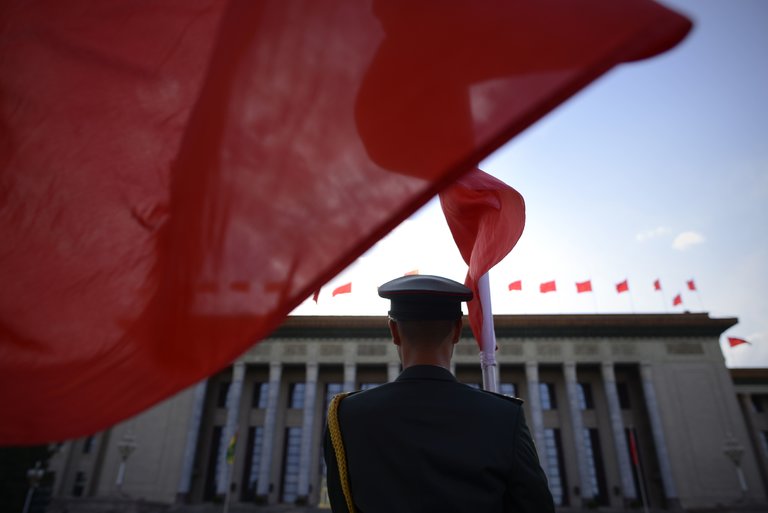Confucius Institutes: China’s soft power
March 22, 2018 | Expert Insights

Republican senators have proposed a bill that will designate China’s Confucius Institutes (foreign language institutes present across universities in the United States) as foreign agents. If the act is passed, it could hinder China’s primary approach to soft power.
Background
Confucius Institutes are “non-profit public institutions which aim to promote Chinese language and culture in foreign countries.” They are run by the Chinese government, under the Hanban (Office of Chinese Language Council International). Besides teaching Mandarin, these organisations often provide Chinese cooking and calligraphy classes, and celebrate Chinese holidays. Teachers in these institutes are employed by the Hanban.
The first Confucius Institute was established in Seoul in 2004. Since then, Confucius Institutes have spread across the world. According to reports, China has established a total of 516 Confucius Institutes and 1076 Confucius Classrooms across 142 countries and regions. This includes 2 classrooms in India. Hundreds of these classrooms are located in China’s largest geopolitical rival, the United States.
While the organisation likens itself to other cultural centres such as Alliance Française and the British Council, these institutes have faced widespread criticism since the beginning of the century. Confucius Institute are widely seen as China’s foremost soft power strategy. In a 2009 article of the Economist, CPC leader Li Changchun reportedly called the institutes “an important part of China’s overseas propaganda set-up.”
In the most recent hearing of the Senate Intelligence Committee on February 13th, senior representatives of US intelligence agencies also spoke about the security threats posed by China. Academia was a major area of discussion. Chinese students account for 31.5% of all international students in American higher institutes of learning. According to a 2016 estimate, over 325,000 Chinese students were enrolled at US universities.
The committee scrutinised Confucius institutes, and expressed concerns regarding the “naiveté” of universities regarding the possibility of informants amongst students and faculty. “The reality is that the Chinese have turned more and more to more creative avenues using non-traditional collectors" said FBI Director Christopher Wray. "They're exploiting the very open research and development environment that we have which we all revere, but they're taking advantage of it.” The Director suggested that these “non-traditional collectors” are used to glean useful information from academic institutions and research laboratories.
Analysis
US lawmakers, including Florida Senator Marco Rubio and South Carolina Congressman Joe Wilson, are sponsoring a bill that, if passed, would require Confucius Institutes to register as foreign agents.
The legislation was announced on March 21st by Senator Rubio, who stated that the legislation “aims to bring greater transparency to the activities of foreign governments operating in the United States.”
The proposed Foreign Influence Transparency Act, if passed, will supplement the Foreign Agents Registration Act (FARA). FARA, passed in 1938, requires agents employed by foreign governments to spread propaganda to register as such with the US Government. Traditionally, “academic or scholastic pursuits” are not included under FARA.
If the bill is passed, Confucius Institutes will have to register as foreign agents. Additionally, the proposed bill will amend the Higher Education Act (1965), and require Universities to disclose foreign donations worth over $50 thousand.
“With the enactment of the Foreign Influence Transparency Act, organisations like the Confucius Institute will no longer be able to use the lack of clarity in FARA to disseminate propaganda,” Senator Wilson said.
“The goal of this legislation is to increase transparency between foreign governments, universities and communities,” he added. “The American people have the right to know if they are consuming propaganda that is being produced by a foreign government.”
Movements to end or restrict the Confucius Institutes are not unprecedented. In September 2014, the University of Chicago closed its Confucius Institute due to a lack of “transparency and academic freedom”. The institute has been widely criticised for restricting discussion on sensitive topics such as Taiwan and the Tiananmen Square massacre. The Canadian Association for University Teachers and the American Association of University Professors have both recommended that the Institutes be “reformed or eliminated outright”.
Assessment
Our assessment is that Beijing has been steadily trying to develop its local influences along with economic and military strength. However, this is now being viewed with increasing suspicion as there is now clear evidence of such centres being used for influencing local developments and being involved in activities that are bordering espionage.
As stated previously, we believe that Washington is becoming increasingly concerned over China’s activities.








Comments